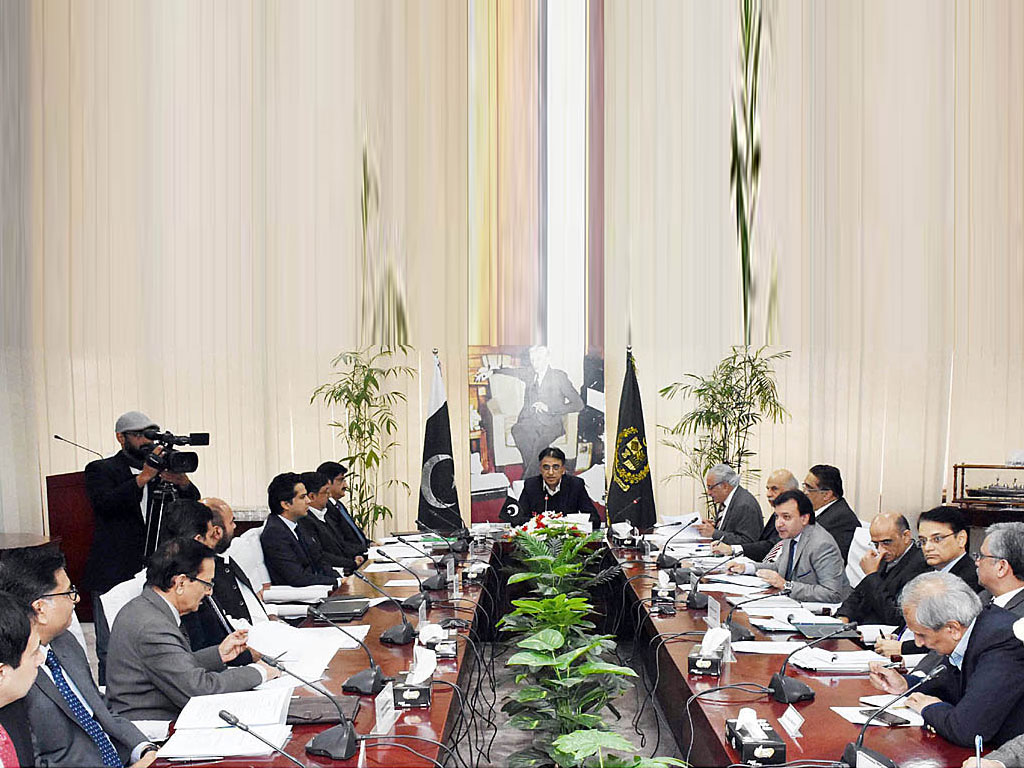
Ever since the 7th National Finance Commission (NFC) award was signed into law in 2009 by the then President, Asif Ali Zardari, after lengthy debates between the centre and the provincial governments represented by different political parties., including Pakistan People's Party Parliamentarians at the Centre and in Sindh, the Pakistan Muslim League (Nawaz) in Punjab, and the Awami National Party in Khyber Pakhtunkhwa, it was rendered controversial by subsequent federal finance ministers.
Dr Hafeez Sheikh, who was appointed as the finance minister in 2010 subsequent to the resignation of Shaukat Tarin, requested provinces' cooperation in March 2011 to assist in keeping the overall national fiscal deficit under control by running surpluses of up to 120 billion rupees during a constitutionally-mandated biannual meeting to discuss monitoring and implementation of the award with provincial finance chiefs. And ironically, even Ishaq Dar, who was reportedly engaged in negotiating the 7th NFC award on behalf of the Punjab government criticised it repeatedly at private forums on the grounds that it left inadequate resources with the federal government.
The 7th award envisaged reducing the share of the federal government from the divisible pool taxes to 44 percent in 2010-11 and 42 percent and a half from 2011-12 onwards, with the rest going to the provinces according to the following formula: population 82 percent which was possible only after Punjab agreed to its reduction, poverty and backwardness 10.3 percent, revenue collection or generation 5 percent and inverse population density 2.7 percent.
The 18th Constitutional Amendment passed in 2010 devolved social sectors to provinces and it was argued that the NFC award with the amendment would strengthen the provinces' capacity to deal with these sectors while reducing the then annual outlay by the centre on these devolved subjects. It is here that the problem surfaced as provinces took the additional resources but did not develop their own capacity to manage the devolved subjects while the federal government continued to allocate considerable resources to ministries that should have been devolved.
In spite of the considerable powers conferred on Ishaq Dar by the then Prime Minister Nawaz Sharif, Dar was unable to convince provinces to change the NFC award in favour of the federal government with Article 160 (3A) of the constitution barring him from unilaterally amending the 7th NFC award formula which stipulates that "the share of the provinces in each award of NFC shall not be less than the share given to the provinces in the previous award." Dar, however, ignored the Article 160 (1) stipulation for which there was precedence notably that "within six months of the commencing day and thereafter at intervals not exceeding five years" and never proactively sought an NFC award that was due in 2015.
The International Monetary Fund (IMF) took up the refrain during its 2013-2016 Extended Fund Facility Programme noting that "in the current round of NFC negotiations the federal government will seek an agreement to better balance devolution of revenue and expenditure responsibilities in a way consistent with the objective of macroeconomic stability." In a nutshell, the PTI administration needs to focus on balancing devolution of revenue with enhanced expenditure responsibilities for provinces or get an agreement from the provinces to enable the federal government to allocate additional resources from the divisible pool. Dar proposed reducing the divisible pool by 7 to 8 percent to set up a proposed National Security Fund. Through this planned move, he also sought enhanced allocations for development of special areas, including federally-administered tribal areas which would indirectly increase the federal share to 50 percent. And it is Dar's proposal rather than the option to better balance revenue and expenditure that is under consideration by the present government which may face challenges given the current political environment.
To conclude, the Khan administration needs to carefully assess which of these two options is doable and proceed forthwith with its implementation.
